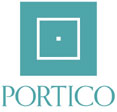Aims And Scope
Bioscience Biotechnology Research Communications is an open-access peer-reviewed journal since 2008, published by the Society for Science & Nature, Bhopal, India, a non-profit academic organization.
The journal focuses mainly on the presentation of regional, national, and international current findings in fundamental and applied areas of Bioscience and Biotechnology, including Zoology, Botany, Biochemistry, Microbiology, Genetics, Agriculture, Environment, and Sanitation.
Recently, published articles have covered areas of biomedical sciences, epidemiology, nutrition and disease, public health, health management, occupational health, and educational technology.
Biosc Biotech Res Comm aims to promote quality scientific research in these applied areas of biological and biomedical sciences. It publishes scholarly articles following scientific rigor, for disseminating information on research and development in the region. Articles may include new experimental methods, laboratory-obtained results, and novel interpretations of existing data, providing practical solutions to human welfare.
Biosc Biotech Res Comm has a special task of helping researchers from developing countries present their cherished fruits of research grown on toiled and tilled trees of hard work. Non-funded research is published with maximum waivers from developing nations. The journal endeavours to serve humanity through scientific development and its progressive communications.
Articles submitted to Biosc Biotech Res Comm are evaluated according to their scientific merit. Editorial decisions on manuscripts submitted to our journal are based on independent, peer reviews. The journal is committed to an editorial process that is not compromised by any influence, thereby actively seeking and encouraging submissions from deserving scholars.
Each type of article has a special format and should comply with the updated Biosc Biotech Res Comm Instructions for authors/submission checklist, published in its issues. The following types of communications are considered for publication: Original Articles, Case Reports, Reviews. The journal has a special invited editorial section, entitled: Under Thousand Words, covering exciting Opinions, Perspectives, and Commentaries.
All articles are published under a Creative Commons License, International Attribution 4.0 BY-CC, meaning thereby a free, unlimited use of the articles for academic purposes without any embargo. Authors have the copyright of their articles. We are particularly in demonstrating conformance with established guidelines and best practices without compromising on quality.
Biosc Biotech Res Comm audiences a large number of authors from diverse regions such as Europe, Asia, South East Asia, the Russian Federation, and the Asia Pacific, including several developing nations. Due to its quality and timely schedule of publication, the journal is read by a large community of scholars, scientists, and students from many continents.
The hallmark of our journal has been the invited contributions of authors and experts from top institutions over the last 18 years.


